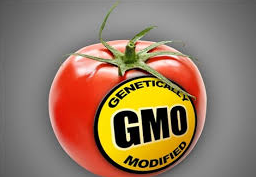By STEPHANIE STROM
Copyright 2014 New York Times News Service
MONTPELIER, Vt. — Going further than any state so far, Vermont on Wednesday passed a law requiring the labeling of foods that contain genetically engineered ingredients.
Though the move came in a tiny state far from the nation’s population centers, proponents of such labeling immediately hailed the legislative approval as a significant victory.
Labeling efforts are underway in some 20 other states, and the biotech and food industries have been pushing for federal legislation that would pre-empt such action.
“This is a historic day for the people’s right to know,” Andrew Kimbrell, executive director of the Center for Food Safety, an advocacy group that helped draft the Vermont legislation, said in a statement.
Governor Peter Shumlin, who had expressed reservations about the bill, said after the vote that he would sign it into law.
“There is no doubt that there are those who will work to derail this common-sense legislation,” he said in a statement.
“But I believe this bill is the right thing to do and will gain momentum elsewhere after our action here in Vermont.” He had earlier predicted that opponents of labeling would immediately take the state to court over the law.
The vote Wednesday by the House of Representatives was 114 to 30 and followed approval by the Senate last week. The law would start July 1, 2016.
More than 90 percent of the nation’s corn, soy, canola and sugar beets — from which the bulk of the nation’s sugar is derived — are grown from transgenic seeds, and the Grocery Manufacturers Association has estimated that some 80 percent of foods found in grocery stores contain ingredients made from such crops.
Products containing ingredients like canola oil, soy lecithin, dextrose and sorbitol would have to be labeled under the Vermont law and other labeling proposals.
Connecticut passed a law requiring labeling last June, but it was contingent on several requirements, and Maine passed a similar law last year.
Labeling will not go into effect in Connecticut, for instance, until at least four other states, one of them contiguous, pass similar requirements. And the combined population of those states must be at least 20 million.
Vermont has roughly 626,000 people, census figures show, so food companies could simply stop stocking grocery shelves without much lost revenue.
Big food manufacturers and the biotech industry that produces the seeds for genetically engineered crops contend that mandatory labeling of products containing ingredients derived from those crops — also known as genetically modified organisms, or GMOs — will be tantamount to putting a skull-and-crossbones on them.
They also fear a hodgepodge of state labeling rules that might complicate packaging and production for food companies.
“Any law requiring the labeling of food that contain GMOs creates extra costs for farmers, food manufacturers, distributors, grocers and consumers,” said Karen Batra, a spokeswoman for BIO, the biotech trade group.
“The bill passed today is especially problematic because it puts these additional burdens solely on Vermont’s citizens without any added benefit.”
The federal legislation drafted by BIO and others would place the decision to require labeling in the hands of the Food and Drug Administration, which is responsible for food labeling in general.

